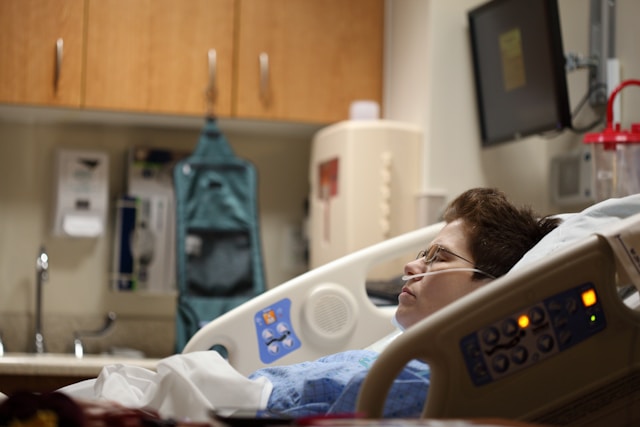Benefits of Urgent Care: Fast and Effective Treatment

In modern society, delaying medical attention creates undesirable stress and is far from ideal. Whether a fever arrives without warning, a minor accident occurs, or an unforeseen health concern develops, prompt treatment is paramount.
That said, urgent care clinics present a suitable and timely alternative for these unexpected situations.
Occupying the middle ground between family doctors and emergency rooms, they deliver quality care with immediate availability and reasonable costs.
What exactly accounts for the widespread preference of urgent care centers among individuals facing such dilemmas? An examination of their main advantages will provide insight.
Quick Access to Urgent Care Services
Unlike conventional medical practices, urgent care facilities emphasize swiftness of care and convenience of access above all else.
Patients arriving at an urgent care clinic can expect to receive medical attention within a half hour typically. Emergency rooms, in contrast, are prone to prolonged waits. For those with minor injuries like sprains or burns or symptoms consistent with seasonal maladies such as influenza or the common cold, this represents a considerable alleviation from stress.
Not only do these streamlined services prioritize promptness, but they also accept walk-in patients without requisitions such as appointments—a blessing for those struck unexpectedly by urgent though non-life-threatening afflictions.
Imagine, for instance, waking one summer Saturday to discover your throat severely swollen and achingly sore; rather than endure days of dysfunction until your regular physician’s next working day, you may go directly to urgent care for relief without delay.
Affordable Healthcare Alternatives
Medical emergencies can destroy you financially, especially if hospitalization in the ER is necessary. In stark contrast, urgent care appointments tend to range from $100 to $200, depending on the services required.
Urgent care is undoubtedly a significantly more economical option for anything that doesn’t endanger your life. Most urgent care centers acknowledge a diversity of insurance options and have transparent pricing structures.
Their out-of-pocket costs for the uninsured are more reasonable than those of the emergency room as well. If you’re enrolled in a high-deductible health plan, urgent care centers ensure you can still acquire quality care at costs less than an emergency room.
More Extended Hours for the Sake of Your Convenience
A more significant advantage resulting from its care is the extended hours for a facility like urgent care centers. Those clinics are open evenings, weekends, and holidays (a time when your own doctor’s offices are typically closed).
This gives you maximum freedom to seek medical attention on your schedule. For instance, if you sprain an ankle during a Sunday soccer game, you don’t have to wait until Monday to have it. Instead, you can visit an urgent care center designed for practical care outside of regular office hours.
Complete Medical Services Under One Roof
Urgent care centers strive to efficiently and thoroughly address an extensive assortment of pressing healthcare necessities. Whether realigning a fractured appendage with stabilizing wrappings and electromagnetic imaging or identifying pulmonary inflammation through chest scrutiny, their adept professionals are capable of managing virtually any sudden predicament.
Regularly rendered supports encompass treating incised skin, twisted connective tissues, combustible surface injuries, diagnostic blood screenings, and pictorial examinations for accidents or disorders, as well as remedying prevalent afflictions like streptococcal pharyngitis, sinusitis, and influenza.
Additionally, preventative vaccines and checkups are often readily available during the same visit. Rather than traversing the countryside seeking discreet treatment for each illness, patients benefit from the harmonized one-stop approach. This coordinated care saves people from an otherwise fragmented healthcare journey while efficiently restoring them to overall wellness.
High-Quality, Patient-Centered Care
High-quality care focused on the patient. Urgent care centers see themselves as providers of humane and effective care. It isn’t unusual to find centers staffed by board-certified qualified physicians, nurse practitioners, and physician assistants who have extensive experience in emergency and family medicine.
Many offices also work at inculcating a patient-centric approach into their environment: cleanliness and comfort are high priorities in clinics.
For example, healthcare providers regularly explain diagnostic and treatment plans so patients feel informed and confident in their care.
Lighter Load on Emergency Departments
Despite the fact that Emergency Rooms are ostensibly meant to handle life-threatening conditions, they are often plagued with cases that are actually non-life-threatening. ACEP has stated that about 30 percent of the people who go to the emergency room have no need to have done so and could have received more appropriate care elsewhere.
By diverting these cases to urgent care centers, we will be able to focus our emergency room resources on the very critical patients while still offering other patients quicker service at lower costs. For example, the simple allergies of going to the urgent care clinic allows emergency room doctors and nurses to focus on heart attacks and strokes. The allocation of health care resources enables an adequate overall provision of care.
Bottom Line
Urgent care has been so successful at this because it has brought together speed, efficiency, affordability for patients with long hours, and all those essential medical services in a single location. And there they stand like sentinels on your way home from work, beckoning eagerly to remind us that control still belongs with those nearest us.
Households facing illness or sick individuals who have no way of waiting for the doctor until office hours reopen on Monday morning can take instant solace in the welcoming arms of an urgent care clinic. Next time you have a medical problem that isn’t life-threatening, ensure to see the doctor at your nearest urgent care clinic.







